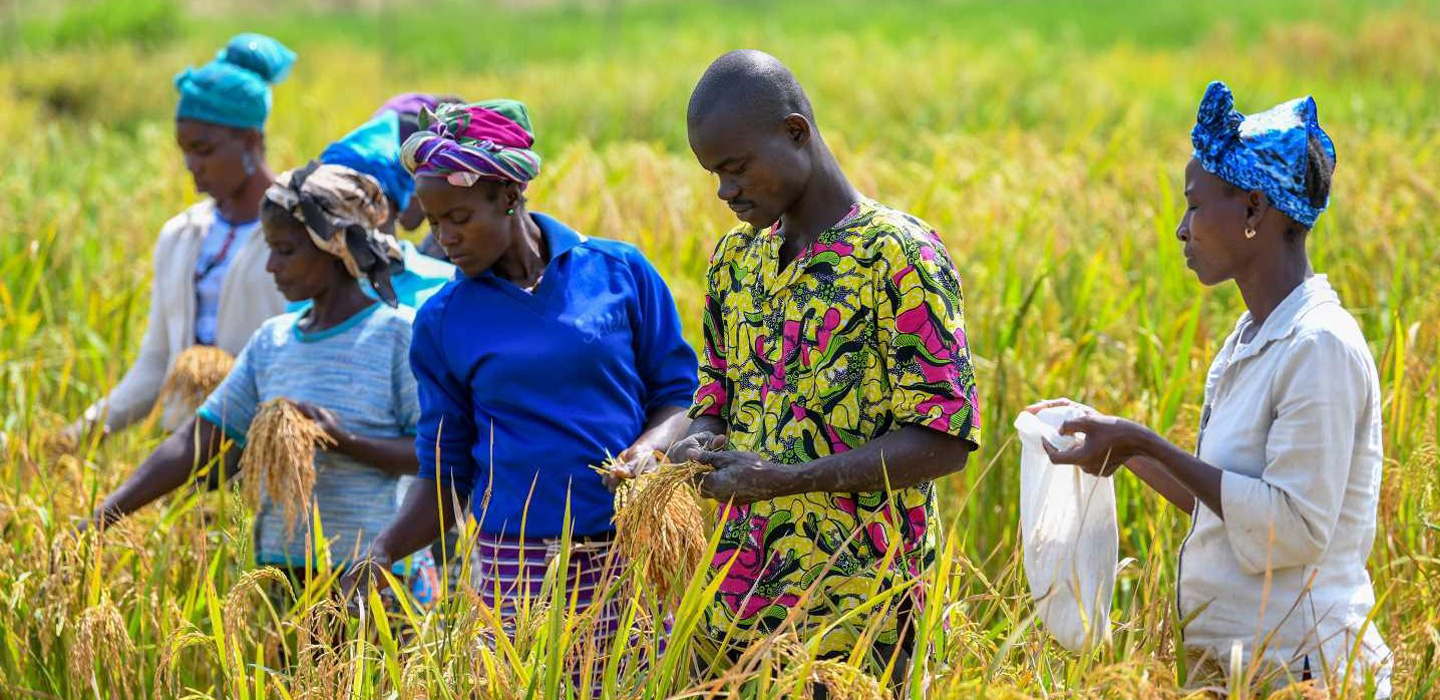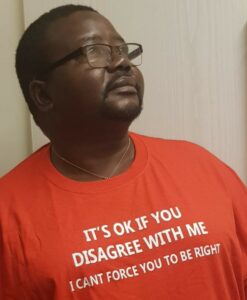 It is an open secret that the price of goods and especially food stuff worldwide, has skyrocketed in the past two years. Many see these changes as not only coincidental but exacerbated by the Covid pandemic. With the Pandemic have come job losses, changes in work patterns, restriction of global movements; all resulting in the downturn of world economies. But unlike the major economies which have fall back and near failsafe economic plans, countries like Sierra Leone catch the cold when these economies sneeze. The impact can be bitingly felt across board. It is the season of good will and plenty. It is time for giving and receiving, for blessed is the hand that giveth….and the one that taketh. But unlike seasons gone by, many Sierra Leoneans are yet to get into the festive spirit. The “gron dry syndrome” continues untamed.
It is an open secret that the price of goods and especially food stuff worldwide, has skyrocketed in the past two years. Many see these changes as not only coincidental but exacerbated by the Covid pandemic. With the Pandemic have come job losses, changes in work patterns, restriction of global movements; all resulting in the downturn of world economies. But unlike the major economies which have fall back and near failsafe economic plans, countries like Sierra Leone catch the cold when these economies sneeze. The impact can be bitingly felt across board. It is the season of good will and plenty. It is time for giving and receiving, for blessed is the hand that giveth….and the one that taketh. But unlike seasons gone by, many Sierra Leoneans are yet to get into the festive spirit. The “gron dry syndrome” continues untamed.
There is no doubt that President Bio and his administration will get the flack, rightly or wrongly and for obvious reasons. But if we are to widen our focus on the backdrop of our current economic, may be, just maybe, we might get a feel for the big conversation. It can sometimes be misleading to gauge a country’s welfare from a measurement of its income (Gross Domestic Products). GDP represents a measure of the size and health of a country’s economy over a period. But if this definition is anything to go by, then our GDP is “gross” (pardon the pun).
We may have a limited growth in GDP, which is effectively offset by our population growth. This could make it difficult for our GDP to keep up. It means that our population outgrows our production at this rate. That’s my assumption; never liked maths or statistics at school. If you add the rate of inflation against the backdrop of an ever devaluing Leone; you tend to get the picture. Added to that is the problem of supply chains. Interestingly, we generally tend to measure our GDP by the circulation of money in our economy. Just ask the Bank Governor Kallon, you might be lucky and get a lecture.
As if you needed further proof, a recent report stated that “Sierra Leone is among twelve African countries that have exceeded the 45% debt-to-GDP ratio set by the IMF low middle income countries”. It means that we consume more than we produce, and that tells us that our GDP is not sustainable. This could be partly because our GDP is not grounded on sustainable resources or economy. Any wonder why our economy is on life support, intubated by our perennial begging bowl?
A case in point is when the World Bank said that it was “regrettably unable to provide further technical assistance nor disburse any further funds under IDA Grant No. D584-SL to support the mid-term population census.”. President Bio soldiered on, even though World Bank was effectively saying that the exercise was not value for money. You wonder what would have become of our economy and country, if the World Bank, the IMF, The EU, NGOs and all our benefactors had been this diligent and vigilant with all those grants, projects and sometimes life denying loans they funnelled through successive governments. If only they had followed the money all those decades ago.
Sierra Leone is notoriously renowned for being a “richly poor” country. By virtue of our resources, we are rich. Reality tells me we are poor. So, what resources do we have today that could guarantee our sustainability? Some of us grew up in Kono, believing that “diamonds are forever”. You just need to visit Yengema, Tongo Field and others to prove the fallacy of that notion. Some are now counting timber with false optimism. They see cutting our trees as value to our GDP, forgetting the loss to our wealth in terms of natural resources. But those who make the bucks care less about posterity, while the astronomical high cost and poor standard of living respectively continues to numb the lives of the ordinary people.
Our staple food is rice, the most nutritive and most widespread staple. As proof, the average man would say “Ar nor eat natin from way door clean, pass braid”. Good food like rice is the basis of happiness. It means that any diet intake that does not include rice does not count as one. But as a nation, how much rice do we produce to feed ourselves? By virtue of its value as our staple food, it stands to reason that the most important and obvious service that is required is an extended and enlarged production of rice. The bulk of our foreign exchange earnings sinks into the importation of our staple food. How do we expect to be fed, when our staple food is produced elsewhere? How do we expect to determine, monitor and have control on the price of something we have nothing to do with its production? You can’t sit under shade if you don’t plant a tree.
The same can be said of other local foodstuffs. It will be a mammoth task to identify the causes but let’s try. For starters, we do not recognise farming as an essential enterprise in our community. Even in schools, we see and treat agriculture as secondary and one for the intelligent. We treat it like a Cinderella enterprise and not worthwhile. But in the Western world, farmers are among the richest private enterprises. In 2020, the average US farm household had $ 1,714, 559 in wealth. Don’t tell me about mechanised farming; we got to start somewhere.
So where did we go wrong?
Until the late 80s, we had systems and infrastructure to support production in our country. We had Sierra Leone Produce Marketing Board (SLPMB), Sierra Leone Oil Refinery, Sierra Fisheries, and even Diamond Corporation of West Africa (DICOWAF). With SLPMB, we did not only ensure fair pricing but also provided a ready made market for the local produce of our farmers. We processed our marine produce and refined our crude oil.
In those days, limited we had some say, no matter how in the pricing and distribution of these products, and most of us lived happily ever after. Farming paid in those days, with coffee, cacao, palm oil, and even livestock aplenty. Even the late S.I Koroma and many other politicians had large swathes of plantations. Sadly, we sold all our national heirlooms or systematically dismantled these foundations of our economy for pittance and selfish gains respectively.
There is no question that the civil war led to the biggest internal migration to our cities in our history. With many people chasing fewer or non-existing jobs, we now have a large percentage of people, and especially our youth on the employment dumpster. And no, walking around with two pairs of sandals all day is not business or employment as we know it. We need to go back to basics and the drawing board and make farming pay. Let’s make it attractive again and give incentives to keep farmers farming.
President Bio launched the Sierra Leone Rice Chain Project in Torma Bum in June this year; stressing that “food security is probably the most critical pillar in achieving the government’s human capital development priorities for the country”. People tend to see the price of goods as the main difference between APC and SLPP rule. Rightly or wrongly, President Bio and his administration get the blame, irrespective of world economic factors. They see his economic policies and other inherent factors as contributory.
So, how do we expect to control the price of foodstuffs that are produced and supplied by external agencies? How can we guarantee our national security, if we cannot guarantee our food security? Does that leave us at the mercy of these external forces? Does it mean that our major importers have the luxury of starving our country to death, should they decide not to export to us? Do such potential threats pose risks to our foreign policies, whereby they can use our dependence on them for leverage to twist our arms? Are we independent, when we are dependent on others for our basic food supplies? Let us guarantee our national security with security, but we can not do so when consumers outnumber the producers.
The government can make farming pay, rewarding and be more attractive by diverting

more incentives to farmers. “Cultivators of the earth are the most valuable citizens. They are the most vigorous, the most independent, the most virtuous, and they are tied to their country and wedded to its liberty and interests by the most lasting bonds” (Thomas Jefferson).
If I were the President of Sierra Leone, I will make it a requirement for all parliamentarians to own a farm, and that all constituency meetings must take place on those farms. Trust. They won’t have to do the heavy lifting, but just to send a message. God Bless Farmers.
Don’t forget to turn the lights out when you leave the room


Be the first to comment